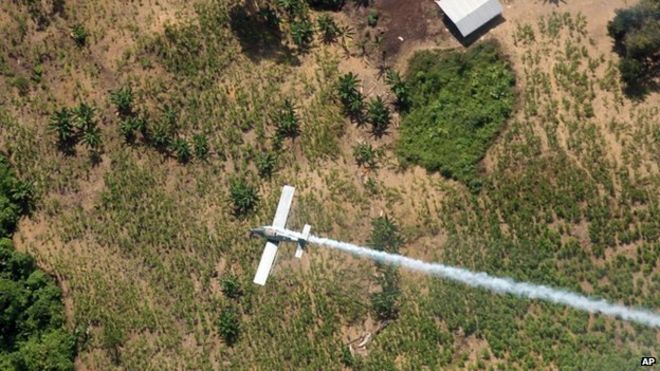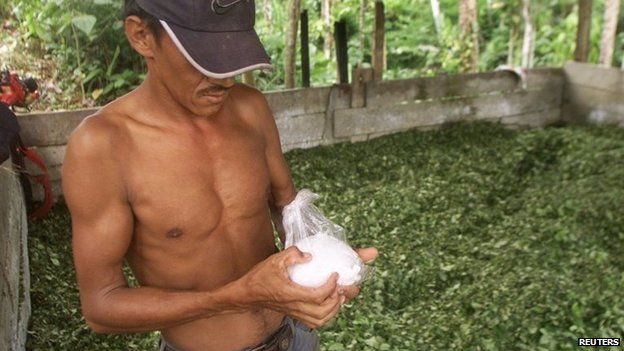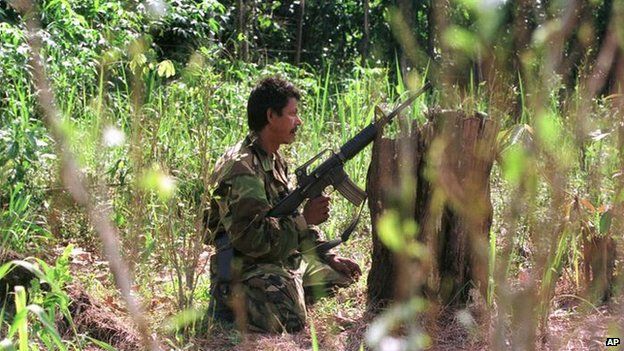Colombia to ban coca spraying herbicide glyphosate
- 2 hours ago
- Latin America & Caribbean

Colombia has announced it will stop using a controversial herbicide to destroy illegal plantations of coca, the raw ingredient for cocaine.
The decision follows a warning by the World Health Organisation (WHO) that glyphosate is "probably carcinogenic".
The product has been used in US-sponsored crop-spraying anti-narcotics programmes in South America.
President Juan Manuel Santos has said Colombia will need to find other mechanisms to combat coca production.
Anti-narcotics officials in Colombia will have until October to prepare an alternative plan.
'Health risk'
"I am going to ask the government officials in the National Drug Council at their next meeting to suspend glyphosate spraying of illicit cultivations," Mr Santos announced.
"The recommendations and studies reviewed by the Ministry of Health show clearly that yes, this risk exists," he added, making reference to the WHO warning on cancer.
But Colombia will not "lower the guard" in its combat against drug trafficking, said Mr Santos.


The Colombian drug eradication programme began in 1994.
The authorities target mainly areas controlled by the country's largest rebel group, the Farc.
They say the Farc use the income from cocaine production to finance its armed struggle.
Other coca-producing countries in the region, including Ecuador and Peru, have also used the herbicide to destroy coca fields.
Farmers say aerial fumigation has destroyed entire fields of coffee and other legal produce.









No comments:
Post a Comment
Please leave a comment-- or suggestions, particularly of topics and places you'd like to see covered